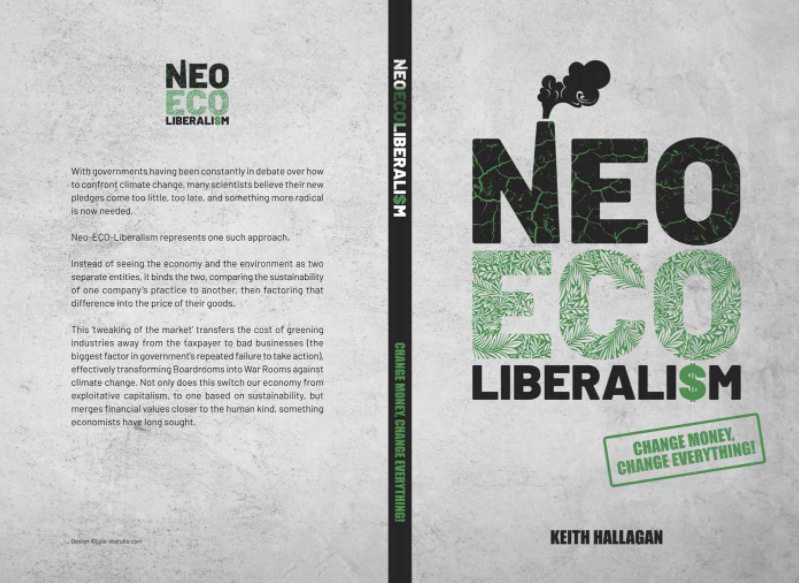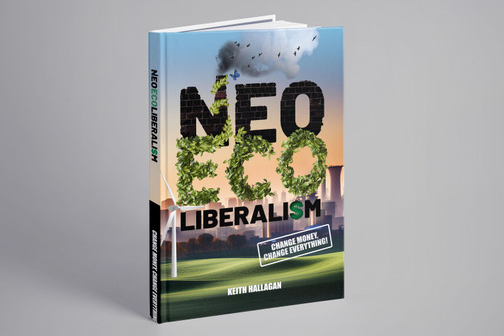The IPCC declared we have just
12 years to drive down emissions or…
suffer catastrophic consequences.
That was in 2018
The IPCC declared we have just
12 years to drive down emissions or…
suffer catastrophic consequences.
That was in 2018
Year by year the ravages of climate change
grow more visible around us,
increasing in number and ferocity,
affecting our lifestyle and choice.
Year by year the ravages of climate change
grow more visible around us,
increasing in number and ferocity,
affecting our lifestyle and choice.
DROUGHTS
WATER SHORTAGES
SOIL EROSION
TAX INCREASES
REVOLUTION
FLOODS
HEATWAVES
WAR
CROP FAILURE
MENTAL HEALTH
ROADS DESTROYED
MASS MIGRATION
FAMINE
INFLATION
DROUGHTS
FLOODS
MENTAL HEALTH
SOIL EROSION
WATER SHORTAGES
CROP FAILURE
REVOLUTION
MASS MIGRATION
ROADS DESTROYED
WAR
INFLATION
HEATWAVES
FAMINE
TAX INCREASES
TIME
IS RUNNING OUT
WITH NO WAY BACK
Once a tipping point
is reached it’s
Game Over!
The issue has always been who should pay,
who makes the sacrifice?
Developing Nations…
Developed Nations…
YOU…
When they’re not the cause?
When other Nations don’t pay?
When your neighbour doesn’t care?
The issue has always been who should pay,
who makes the sacrifice?
Developing Nations…
When they’re not the cause?
Developed Nations…
When other Nations don’t pay?
YOU…
When your neighbour doesn’t care?
The crux of the issue is our economy; it’s detached from the environment, making our values cross-wired.
For while we accept and know we need to do more, when we’re not financially rewarded
‘why should I care?’
Many point the finger of blame at Neoliberalism, given its central belief rests on how a growing business is good for the economy, and a growing economy delivers greater riches and revenue for all, while ignoring the fact that it’s growth that’s causing our homes to flood, our forests to burn and crops to wither and die.
All of which places further strain upon the economy, as it requires ever-increasing resources to repair, causing insurance premiums, commodity prices and taxes all to rise.
They claim the market has gone too far and Neoliberalism has run its course and now something more holistic is needed.
But here’s the thing, Neoliberalism is perfectly capable of performing this task. It’s the payment system that needs to change.
Frederick Hayek
While the onus has always been on our governments to solve the crisis, they have remained locked in debate over how best to pay for the clean up and what industries should be regulated. A better solution would be to open crisis to the market, enabling every boardroom in every business to do its part, thus engaging with the creative capitalist process. Without doing so, corporations and consumers will continue ‘business as usual,’ as history well proves…
George Orwell, 1946. ‘Why I write.’
If companies behave like this on the brink of war with fascist regimes, no matter how many times nature bombards us with warnings or scientists slam us with facts, it is delusional to harbour any belief that businesses will adapt.
Yet to deride business for this is a folly on our part. The fault lies not with them but the present framework of the market, because a company is not paid for being virtuous but for rising sales and higher profits, built around the cut-throat world of competition.
At its core, the problem stems from our economy being founded and centred upon a financial payment system that operates on the exclusive reciprocation of two agents – the buyer and seller. Each typically invests their labour, skill or knowledge on the expectation of receiving an immediate value that will enhance their lives, while ignoring their long-term social and environmental issues, leaving it for our governments to solve, through taxes.
This is an unfair and highly inefficient drawn out process, ultimately caused by the environment not being factored into the price, resulting in the economy and the environment being approached in completely separate ways, running counter to one another. Which begs the question why, considering –
‘Both’ are public concerns and
‘Both’ can be dealt with by any business/consumer
There is no reason therefore, why both cannot be dealt with by the market, providing the signals and incentives are realigned to factor this.
Money is not immutable. It’s an institution oiled and maintained by the sovereignty to help measure, record and exchange what we value as a society. Yet while its form has changed over the centuries, from coins to paper to digital codes, the values that dictate it have not.
But ours have.
Today it is impossible to ignore the news flash before us
heatwaves
wildfires
floods
and we know we have to act.
We accept too that it is ourselves, with our growing numbers and ceaseless appetite, that is fast gnawing away at both it and the foundations of what we most enjoy – the liberties and comforts civilization gifts us.
As citizens, we acknowledge and accept each one of these points, but as consumers we don’t.
Skill, knowledge, labour and scarcity are the defining factors that help form a price, while the environment is omitted. This dismissal of the crisis in financial terms causes businesses to opt for paths that don’t mitigate, but exacerbate the crisis – marketing over green innovation; robotics over cutting waste – entrenched by hard competition which makes businesses fight for growth and survival. Yet this puts the market out of touch with the brutal reality we face – ‘our survival’.
This is a fight we all need and indeed want to partake in, be it businesses or individuals, for we affect the environment as much as it affects us, and to sit idly by as our world goes to wrack and ruin goes against our values and logic. And yet the price mechanism we adhere to advocates against fighting, which, ironically, is the very antithesis of what money is founded upon, ‘a collective belief’ – not denialism!
But imagine this…
What if we were to redraw the rules of competition so it aligns the economy and the environment, making our financial values closer to the human kind, and our short-term prospects meld with the long. Would this not be a better framework to operate on; enabling consumers and businesses to both prevent and prepare for climate breakdown so they prosper and profit by it.
Imagine too, if this were to come at no extra cost to the taxpayer, but in fact benefitted the treasury, both in terms of by-passing the parliamentary procedure and by placing the burden on those that do the least while rewarding those that do the most within their means.
Wouldn’t this restore our sense of purpose, enabling us all to defend ourselves, restoring trust in one another, engaging in facts, not delusions while pushing for a brighter future, instead of bleak.
NEO ECO LIBERALISM
Neo
ECO
Liberalism



